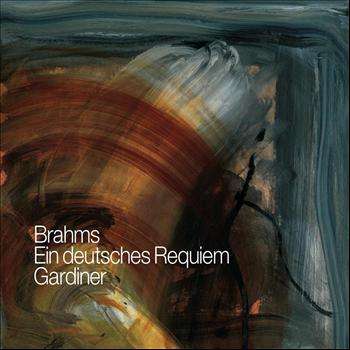|
Back
03/28/2012
Heinrich Schütz: Wie lieblich sind deine Wohnungen – Selig sind die Toten
Johannes Brahms: Ein deutsches Requiem, Op. 45
Katharine Fuge (soprano), Matthew Brook (baritone), Orchestre Révolutionnaire et Romantique, Monteverdi Choir, John Eliot Gardiner (conductor)
Recorded live at Usher Hall, Edinburgh, (08/2008) [Brahms] & Royal Festival Hall, London (10/2007) and Salle Pleyel, Paris (09/2007) [Schütz] – 76’
Soli Deo Gloria SDG 706 – Booklet with essays and translations in English, French and German

   
The idea of a perfect performance is a fallacy. Even if a performance is exceptional, there is almost always something detrimental to be mentioned. Furthermore, lightning never strikes twice as the saying goes and while Sir John Eliot Gardiner’s first recording of Brahms’ Ein deutsches Requiem is considered one of the reference recordings of the masterwork, a 2008 performance is released here. Remarkably, Gardiner brings a stunning freshness and vitality to this new recording. Add these to a nearly flawless performance by one of the most virtuosic choral and orchestra combinations in the world, and you will find a recording as special as this one.
It should be noted, that there may be many who will avoid this recording. This is not a Brahms Requiem for those who prefer theirs to be stately, broad and lush. This is Brahms for the “period” crowd: those who think Gardiner and Norrington may be on to something. In his tantalizingly brief booklet essay, Gardiner discusses his rationale for his choices of tempi and period instruments. The former are brisk and flexible, while nimbly dispatched by the latter. Strings play with virtually no vibrato and are mimicked by the chorus. In fact, there is such a remarkable flexibility to this performance that the listed quantity of forces seems a mistake. Make no mistake, however, that there is some lush, legato singing here that rivals the beauty of the Solti or Karajan recordings. “Ich hoffe auf dich...” from the third movement is inspired. The famous fourth movement has some of the finest coordinated legato I have heard, with perfectly timed consonants. None of these characteristics should scare off enthusiasts of rich choral singing. The phrase “Mein leib und seele freuen sich...” carried over into the following is a perfect example of the versatility and impeccable technique of this choir. Their sound is not rigid in its application, it is uniquely flexible from movement to movement and phrase to phrase. They use their talents to create moving, breathing music, not a museum exhibit. The orchestra is a tight and powerful band, navigating the multiple transitions and rubati with outstanding sensitivity and coordination. The two soloists, members of the Monteverdi Choir, perform well. Mr. Brook brings a wonderful lieder-like coloring to his passages and Ms. Fuge’s sweet soprano is moving in its assuredness.
The disc begins with two motets by Heinrich Schütz. Aside from sharing some of the same texts as the Requiem, there are unmistakable similarities in the choral writing from the two composers. That Gardiner opens his recording with these pieces, as opposed to using them as fillers after the main event is brilliant and a powerful argument for some of the interpretive choices in the Brahms. As I mentioned, a perfect performance is a fallacy, and this disc proves to be no exception, at least in the recorded sound. It occasionally sounds stifled and the sopranos’ soaring tone suffers as a result. In the broader scheme, this is a minor annoyance. Nonetheless, some listeners may feel the performance itself is too “perfect.” Every “i” is dotted, and every “t” is crossed. There has probably never been a louder trumpet entrance when cued by the chorus in the sixth movement. Though the chorus does sing robustly and even rawly (their second movement entrance is jaw-dropping), they are never in danger of losing control. However, the group’s flexibility and virtuosity makes this recording a remarkable achievement: a Brahms Requiem that sings, dances, and, above all, is humanly relatable. I have never heard another quite like it.
Matthew Richard Martinez
|